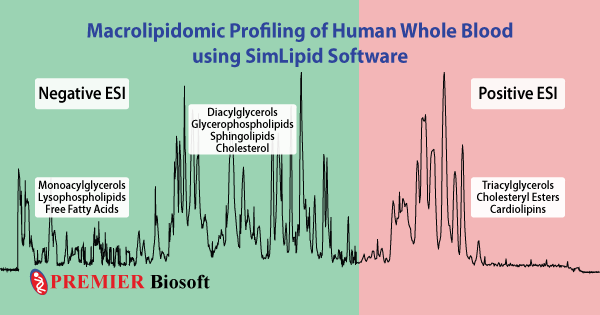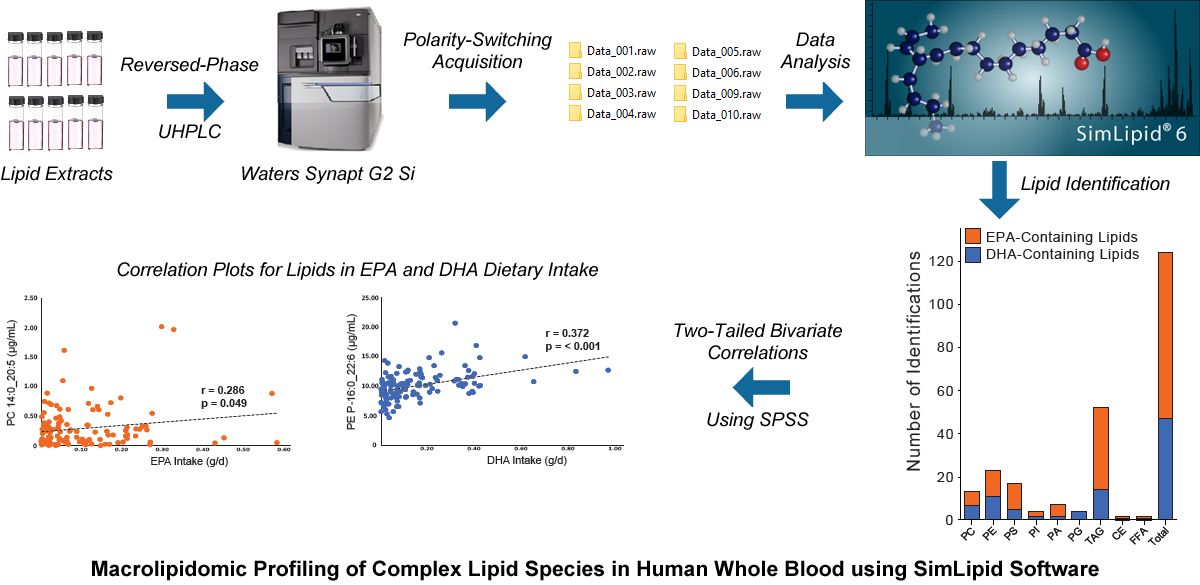Macrolipidomic Profiling of Human Whole Blood using SimLipid Software for the Discovery of Novel Biomarkers of Omega-3 Polyunsaturated Fatty Acid Intake

June 11, 2020
The role of Omega-3 polyunsaturated fatty acid (PUFA) in diet and blood levels has been extensively researched. The most common approach involved is the use of gas chromatography coupled with flame ionization (GC-FID) detection to study either the total lipids in overall fatty acid metabolism or lipid fractions of plasma/serum. The results from GC-FID analysis target the conversion of fatty acyl chains on complex lipids into fatty acid methyl esters. However, the major drawback of this approach is their inability to structurally characterize the complex lipid species in their native state. Application of ultra-high performance liquid chromatography/tandem mass spectrometry (UHPLC-MS/MS) helps in the identification and quantitation of highly-abundant complex lipids in human whole blood.
Lipid extracts obtained from whole blood samples were separated using a reversed-phase UHPLC and later analyzed using a Waters Synapt G2Si QToF mass spectrometer (Waters, Milford, MA, USA). A polarity-switching MS/MS method was implemented with the same voltage (2.25 kV) and lipids were identified using SimLipid software. The peak areas were calculated using Progenesis QI and for performing two-tailed bivariate correlations SPSS for Windows was implemented. A total of 124 eicosapentaenoic acid (EPA) or docosahexaenoic acid (DHA) containing lipids were identified in whole blood across several lipid classes, along with the highly abundant Omega-3 lipids. Lastly, the correlation results suggested that the Omega-3 lipids were more strongly correlated with DHA intakes, followed by EPA, and with total Omega-3 PUFA intakes. For more details, please visit our poster.

| Comment | Share |
|


